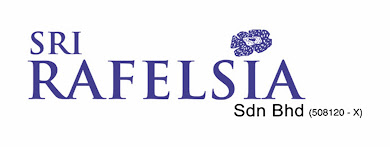Dyslexia is one difficulty under the spectrum of specific learning difficulties. The reason it is now known as a specific learning difficulty is because the difficulties faced by the learners are very specific in nature. Learners with dyslexia do not face difficulties in any other aspect of learning except with reading, writing, spelling and/or counting. This means, their intelligence is not affected, neither is their physical, social and emotional development impaired.
Learners with dyslexia face difficulties with learning to read. The difficulties are lie within the processing of language area. However, spoken language is not affected. Some dyslexics face difficulties with isolated letters while others face these difficulties at whole word and even at sentence level. They do not have difficulties with comprehension. The core difficulties lie with the breaking down and reading of words. That is why, is someone reads to a dyslexic, they can understand the subject matter very well. They do not need a "shadow aide" in school. They need someone to read to them thats all.
Sometimes dyslexia co-exist with other difficulties such as dysgraphia - which is a handwriting difficulty. They find it difficult to look at the text and then reproduce it. Typically, they copy very very slowly. This is when you will notice unfinished copying work especially from the board.
When dyslexics face reversals with numbers and mathematical symbols, this is known as dyscalculia. If one sees the number 13 as 31, there are huge implications when conducting numerical operations. Some even experience a rotation - so the "+" will look like "x".
Some individuals with specific learning difficulties face problems with concentration. Again, the underlying cause for this is not ADD or ADHD but rather the fatigue that the brain goes through with dyslexia.
IT is therefore, not enough to just diagnose a specific learning difficulty, it is also important to be able to identify the specific set of strengths and weaknesses the individual faces. Each individual with dyslexia, faces a different combination of difficulties. Not everyone with dyslexia faces b/d reversals.
Medical doctors cannot identify dyslexia. It is NOT a medical problem. So, please be weary of pediatricians who tell you that your child has dyslexia. They are in no position to do so. People with bachelors degrees in psychology cannot give you a proper diagnosis either.
Also be aware of the many miracle "cures" out there. There are no quick fixes with specific learning difficulties. Visual tracking programmes cannot make dyslexia go away as it is NOT a visual based problem. NLP does not help specific learning difficulties either. Do not be fooled by placebo effects of dubious therapies. Seek people who have proper training and skills.
Learners with dyslexia face difficulties with learning to read. The difficulties are lie within the processing of language area. However, spoken language is not affected. Some dyslexics face difficulties with isolated letters while others face these difficulties at whole word and even at sentence level. They do not have difficulties with comprehension. The core difficulties lie with the breaking down and reading of words. That is why, is someone reads to a dyslexic, they can understand the subject matter very well. They do not need a "shadow aide" in school. They need someone to read to them thats all.
Sometimes dyslexia co-exist with other difficulties such as dysgraphia - which is a handwriting difficulty. They find it difficult to look at the text and then reproduce it. Typically, they copy very very slowly. This is when you will notice unfinished copying work especially from the board.
When dyslexics face reversals with numbers and mathematical symbols, this is known as dyscalculia. If one sees the number 13 as 31, there are huge implications when conducting numerical operations. Some even experience a rotation - so the "+" will look like "x".
IT is therefore, not enough to just diagnose a specific learning difficulty, it is also important to be able to identify the specific set of strengths and weaknesses the individual faces. Each individual with dyslexia, faces a different combination of difficulties. Not everyone with dyslexia faces b/d reversals.
Medical doctors cannot identify dyslexia. It is NOT a medical problem. So, please be weary of pediatricians who tell you that your child has dyslexia. They are in no position to do so. People with bachelors degrees in psychology cannot give you a proper diagnosis either.
Also be aware of the many miracle "cures" out there. There are no quick fixes with specific learning difficulties. Visual tracking programmes cannot make dyslexia go away as it is NOT a visual based problem. NLP does not help specific learning difficulties either. Do not be fooled by placebo effects of dubious therapies. Seek people who have proper training and skills.





0 Comments